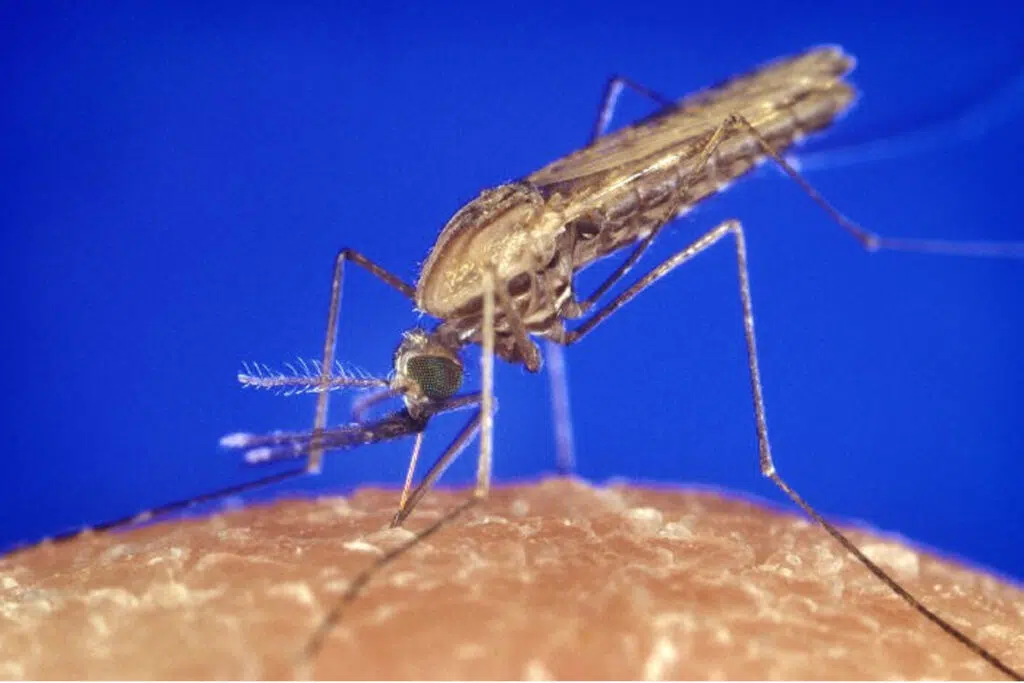
Mosquitoes Engineered to Not Spread Malaria to Humans
Scientists have engineered mosquitoes that pose little if any risk of transmitting malaria to humans.
The genetic modification causes mosquitoes to produce compounds in their guts that stunt the growth of parasites that cause malaria — meaning those parasite will unlikely reach the mosquitoes’ salivary glands and be passed through bites before the insects die.
Funded by the Bill and Melinda Gates Foundation, the mosquito modifications were developed by researchers from the Transmission: Zero team at Imperial College London and designed to work in unison with existing gene-altering technology to spread the modification and drastically cut malaria transmission.
The results of the modification technology were published in the Sept. 21 edition of the journal Science Advances.
The new technique has so far proved successful in dramatically reducing the possibility of malaria spread in a lab setting, but only after the technology shows to be safe and effective in real-world settings can it offer a powerful new weapon against malaria.
As such, the research team is looking forward to beginning field trials, but will thoroughly test the safety of the newly-engineered modifications before pairing them it with enhanced mosquito genes for testing in the real world.
Meanwhile, collaborators from the Institute for Disease Modeling at the Gates Foundation have also developed a model able to assess the impact of such modifications if used in a variety of African settings. That team of researchers confirmed the technology developed by the Transmission:Zero team would be powerful enough to decrease malaria cases even in areas where transmission is high.
With about half of the global population still at risk of contracting it, malaria continues to be one of the world’s most devastating diseases. In 2021 it infected 241 million and killed 627,000 people — mostly children aged below five years old in sub-Saharan Africa.
“Since 2015, the progress in tackling malaria has stalled. Mosquitoes and the parasites they carry are becoming resistant to available interventions such as insecticides and treatments and funding has plateaued. We need to develop innovative new tools,” said the study’s co-first author, Dr. Tibebu Habtewold of Imperial’s Department of Life Sciences.
The disease is transmitted between people when a female mosquito bites someone infected with the malaria parasite. The parasite develops into its next stage in the insect’s gut and travels to its salivary glands, where is stands ready to infect the next person the mosquito bites.
Only about 10 percent of mosquitoes live long enough for the parasite to mature enough to be infectious, but the research team sought to decrease the odds of transmission even more by extending the time it takes for the diseased parasites to grow in the mosquito gut.
In order to accomplish that goal, the Transmission:Zero team genetically modified Anopheles gambiae, the main malaria-carrying species of mosquito in sub-Saharan Africa. The scientific team engineered it so that when a mosquito takes a blood meal, it produces in its gut two molecules called antimicrobial peptides, which were originally isolated from honeybees and African clawed frogs and manage to impair the malaria parasite’s development.
The peptides interfere with the energy metabolism of the parasites and also shortened the lives of mosquitoes.
Ultimately, the affectation causes a delay of a few days before a parasite grows into its next stage and is able to reach the mosquito’s salivary glands; by that time, the lifespans of most mosquitoes in nature have already ended.
Using the genetic modification to prevent the spread of malaria in the real world requires it to be passed from lab-bred mosquitoes to wild ones. Normal interbreeding would spread the gene modifications to a certain degree, but, as already mentioned, the engineered mosquitoes end up with reduced lifespans — meaning the desired gene changes would quickly fade through natural selection.
Then there are other genetic enhancements to mosquitoes that would make the anti-parasite modifications to be inherited preferentially, allowing it to spread more widely in natural populations. in order to accomplish the dispersal of these two technologies, the Transmission:Zero team is engineering two separate, compatible strains of modified mosquitoes — one with the anti-parasite modification and one with the enhanced genes.
The researchers will then first test the anti-parasite modification by itself, adding in the genetic modification after the anti-parasite programming has been proven effective.
“We are now aiming to test whether this modification can block malaria transmission not just using parasites we have reared in the lab but also from parasites that have infected humans,” said co-lead author Dr. Nikolai Windbichler, from Imperial’s Department of Life Sciences. “If this proves to be true, then we will be ready to take this to field trials within the next two to three years.”
Said co-lead author Prof. George Christophides, also from Imperial’s Department of Life Sciences:”History has taught us that there is no silver bullet when it comes to malaria control, thus we will have to use all the weapons we have at our disposal and generate even more.”



